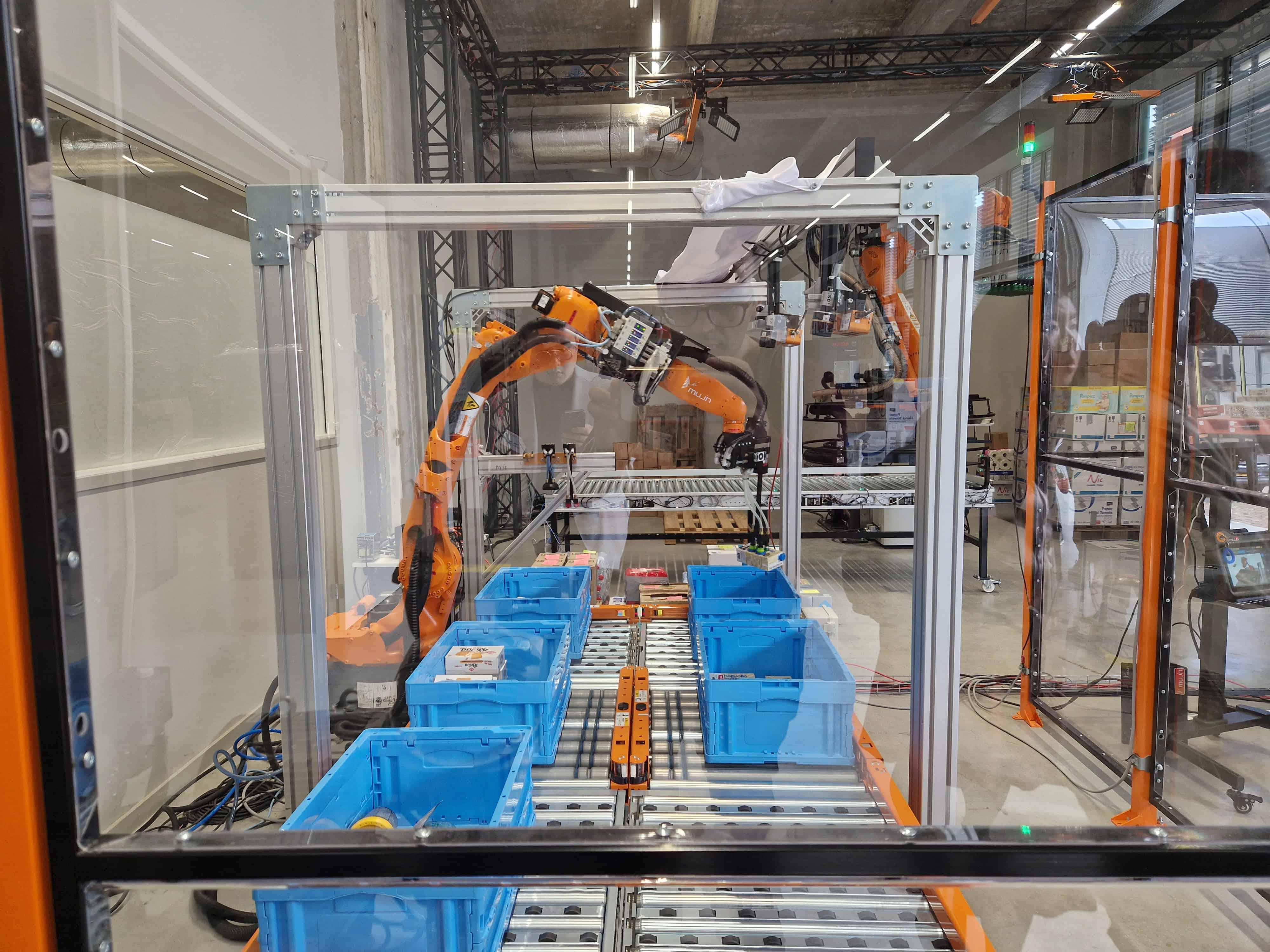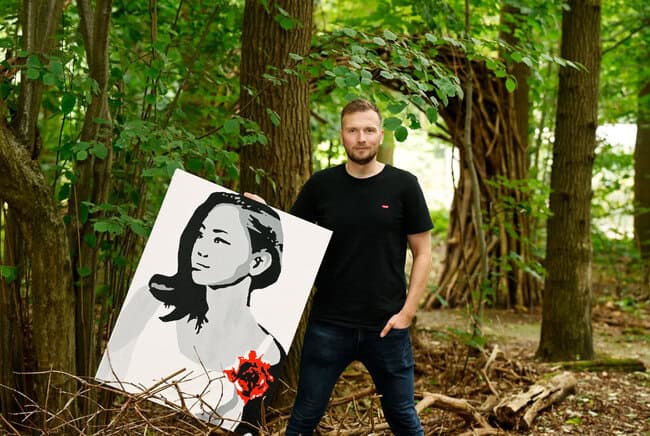
Khashayar Mansourizadeh dreams of replacing all complex systems with simple modules. “Why make things complicated when they can be simpler?” The Iranian wants to apply that idea to robotics. With his start-up Apeiron, he is working on a swarm of modular robots that work cooperatively.
Boundless
Mansourizadeh made a conscious choice to study at the Eindhoven University of Technology (TU/e) after completing his master’s degree in mechanical engineering in Milan. TU/e is where he can work on his dream. “In Eindhoven I am not only able to gain the right kind of knowledge, but I also come into contact with the right people there.” The two-year post doctorate engineering program gives him the knowledge he needs, but also the space to work on his start-up Apeiron. The name of the start-up, by the way, refers to his ambition; it is Greek for boundless. Ultimately, Mansourizadeh wants to take his modular robots into space.
He is working on these modular robots together with his two partners, Maurits de Lint and Nima Negarandeh. To start with, the robots are designed to do logistical tasks. What sets Apeiron’s robots apart from other robots is that they can quickly adapt to the nature of the work. “Developing a robot is expensive and you have to put a lot of time and energy into making one,” Mansourizadeh states. Often it is one robot that does the work. Mansourizadeh wants to develop a swarm of robots that work collectively, “just like a swarm of ants or bees.”
The warehouse of a retail or large company, for example, may have tens of thousands of products of varying sizes and weights to deal with, Mansourizadeh continues. “When there were no robots at all, employees would cover about 10 to 20 kilometers a day,” he notes. “The robots that are there now are made to be able to transport and handle the largest and heaviest products. You also use them for the smaller items. That’s inefficient. Our robots adapt – one robot does the lighter work, several do the heavier.”

Into space
That’s why the Iranian wants to first enter the market of logistics with his start-up. “Logistics is an entry point for us. We want to eventually make robots for specific expeditions, for defense and even for expeditions into space.” As one of the 20 finalists of the TU/e Contest – a competition for entrepreneurial students – the team talked to a lot of experts and business developers. Through this, Mansourizadeh learned, among other things, that logistics would be a good place to start. There is a high demand for robots there and “our adaptation technique really fits into the logistics world.”
For robots to go on space expeditions, there are still a few more steps of development to be taken, Mansourizadeh explains. “The adaptability of robots is also something that is wanted in space. For instance, NASA is currently building expensive robots. If a wheel breaks during a mission, then that mission has failed.” That can be avoided with several smaller robots, Mansourizadeh believes. He envisions about thirty of those smaller robots joining the expedition. “If ten of those break down, you still have about twenty left that can do the job.”
The men put the finishing touches on the first prototype this past summer. The fact that they did not yet have a prototype during the TU/e contest meant no victory in the finals. “A disappointment,” Mansourizadeh says. The hardware for the first version is now ready. The basic programming has also been finished and the robot can be operated manually.
Online
The biggest challenge for Mansourizadeh is to find enough people for the team, which is currently made up of three people. Lint is an industrial engineer and works mainly on the business side of the start-up. Negarandeh is a robotics engineer, he lives in Iran. Mansourizadeh met him online ten months ago through another friend.
Negarandeh is working on the robot remotely. Last summer, Mansourizadeh traveled to Tehran to give him a computer and camera. Negarandeh was then able to get to work with these. “An application for a start-up visa is now underway, but because of corona it is difficult to get one,” he says.
Much of the technical work falls on Mansourizadeh’s shoulders. With his background as a mechanical engineer, he taught himself all that he needs to know about robotics. He started doing that while studying for his master’s in Milan. “There I realized that you can solve a lot with modular robots. I thought that was such a great discovery that I started to immerse myself in it. I also learned to program and how to use electronics.”
Usable products
After his master’s, he had two options: a PhD in Houston or the PD Engineering program at TU/e. He chose the latter. He is not looking for a research position. Making usable products is what he wants to do.
Things moved quickly once he was in Eindhoven. He arrived in the Netherlands on December 16 last year. Less than a month later, he joined TU/e innovation Space, an open community where students, researchers, the business community and social organizations work together on solutions to social issues. Interviews with people from industry and business developers followed. Not long after, the team participated for three months in the TU/e Contest. An intensive trajectory with even more enlightening conversations, according to Mansourizadeh.
Last summer, Mansourizadeh built the body of the robot in the prototyping center of innovation Space. The first talks with the supermarket chain Jumbo and Philips also came about through that channel. The customer development program at The Gate is planned for the upcoming period. “And we are having discussions with potential customers and investors.”
The business world
This month Mansourizadeh hopes to officially register his company with the Netherlands Chamber of Commerce. Once he finishes the PD Engineering program, he will fully focus on the business side of things. He realizes that he still has a lot to learn, “especially when it comes to the more business-related conversations.”
His biggest lesson so far? “If you want to start a business, you have to be not just smart but also lucky. There are a lot of products on the market that I find myself thinking: are they really needed? Also, there are a lot of research findings that should actually be able to find their way to the market. Because people don’t know how business works, for example. I’ve learned that you have to decide on a strategy, but above all, you have to seek help and that you have to have a bit of luck.”








